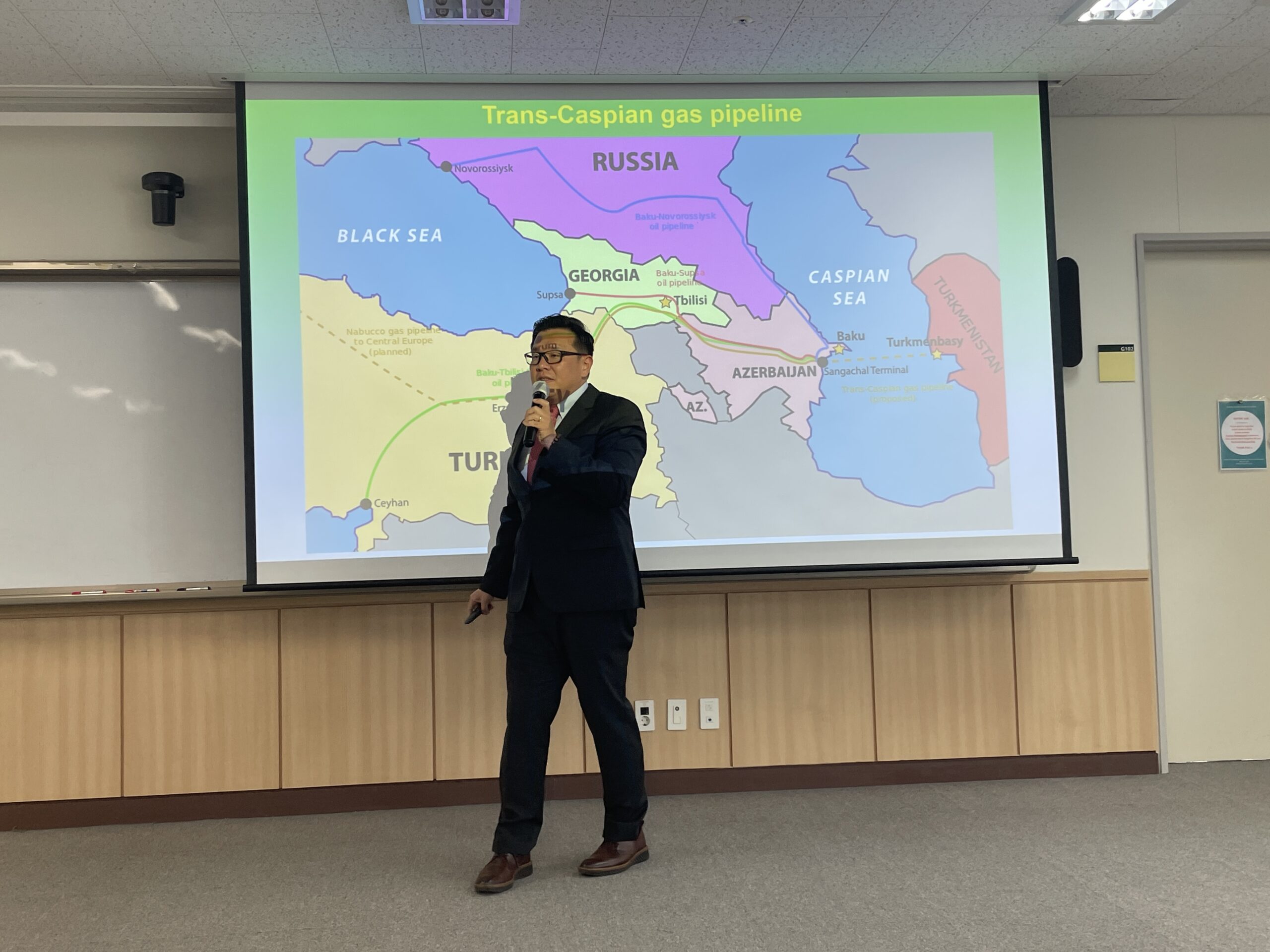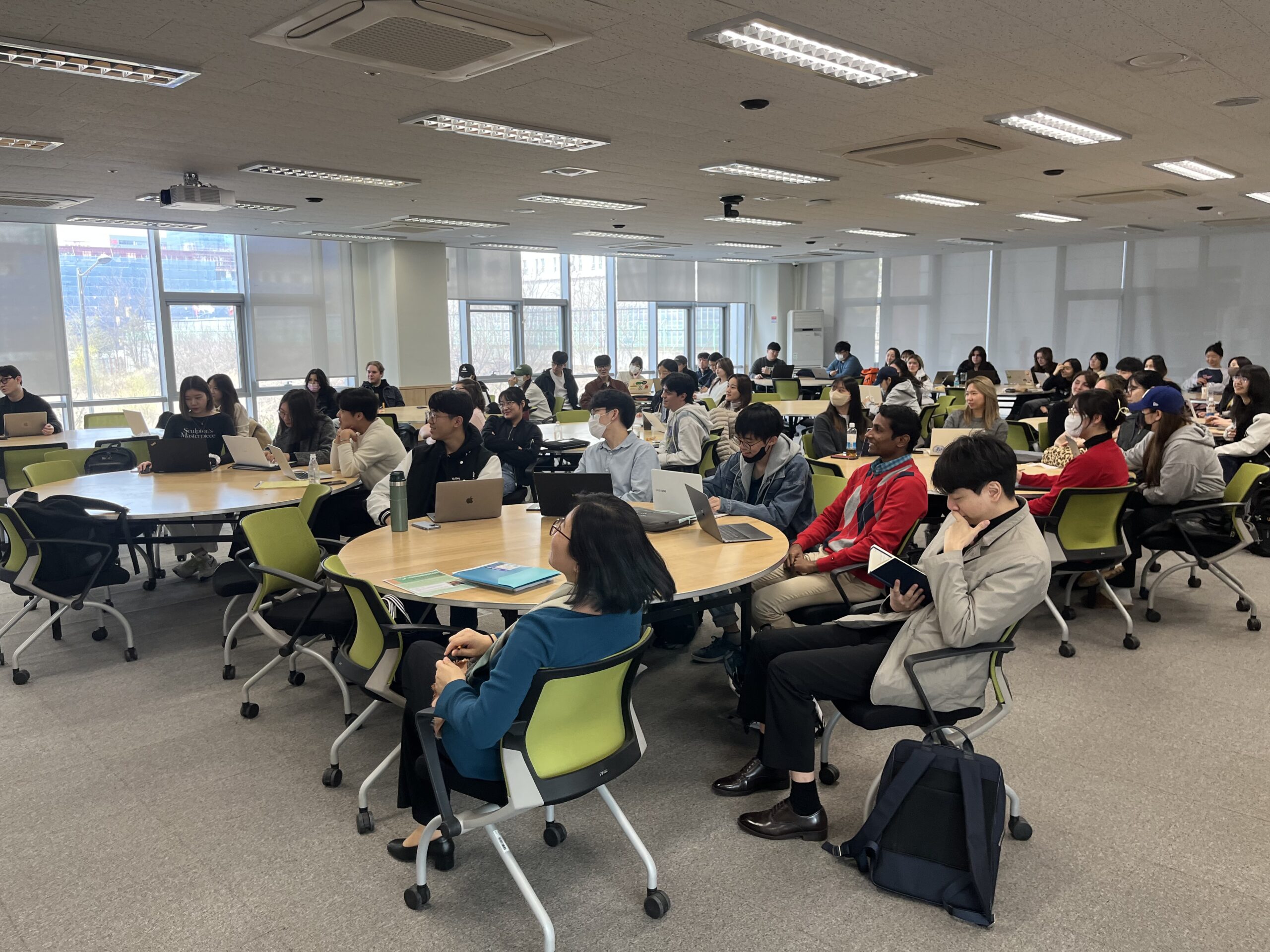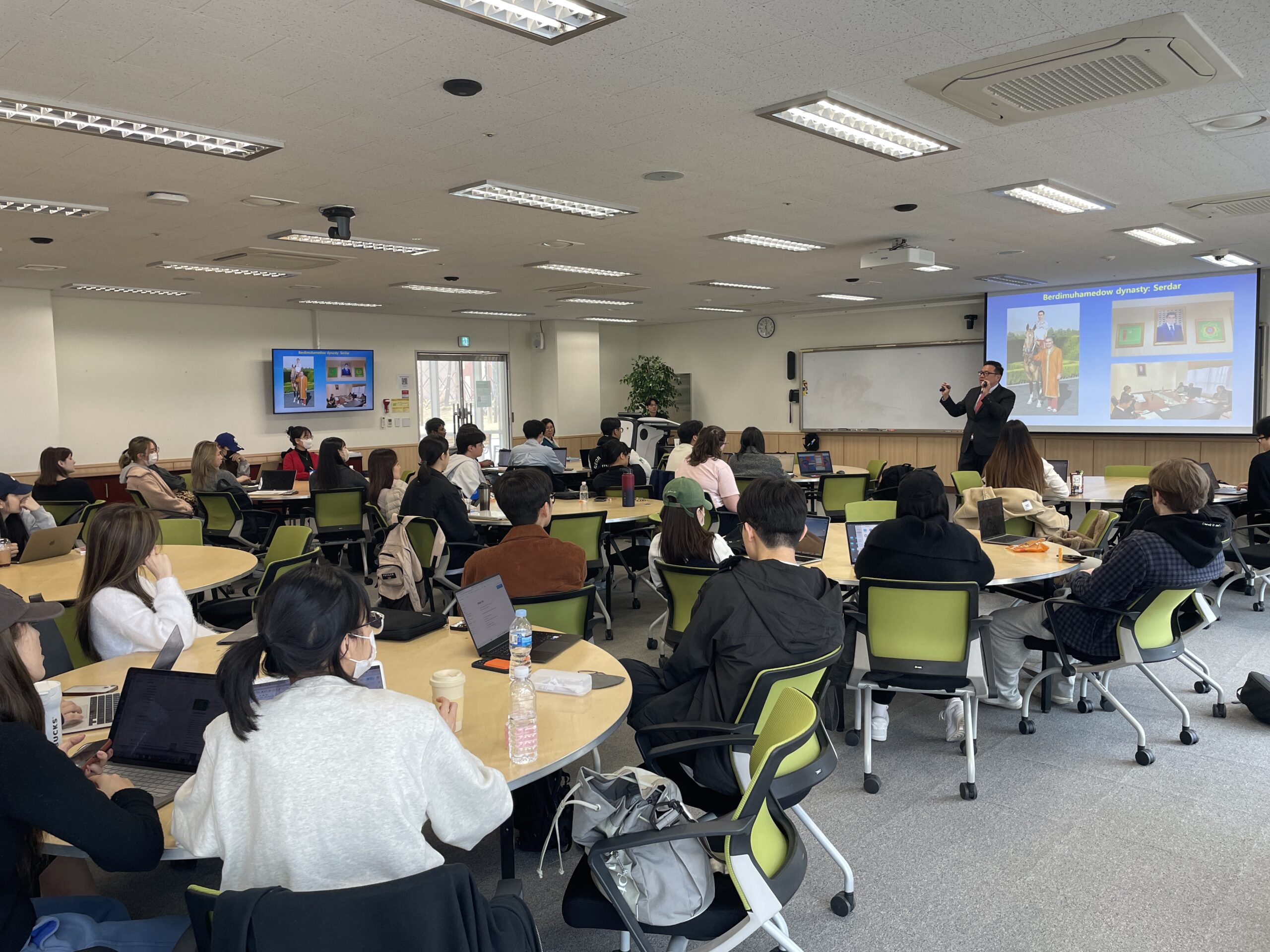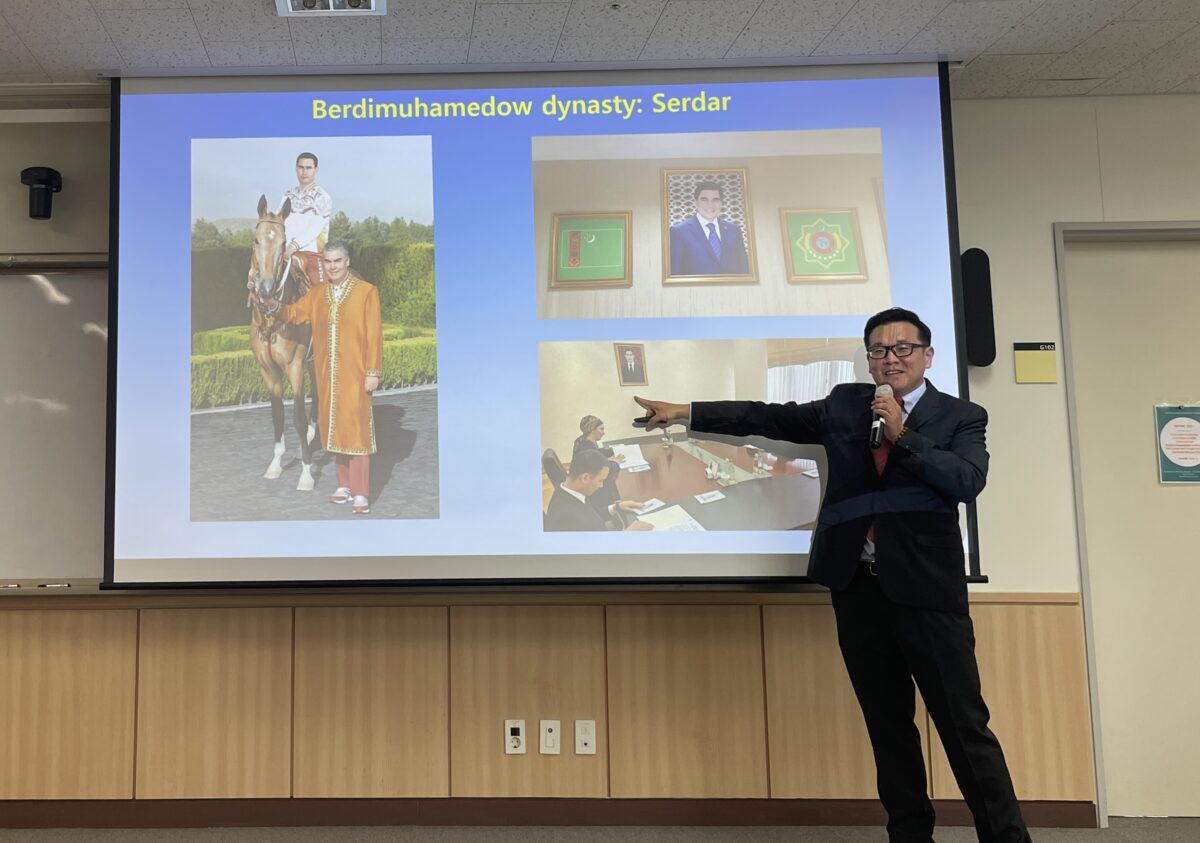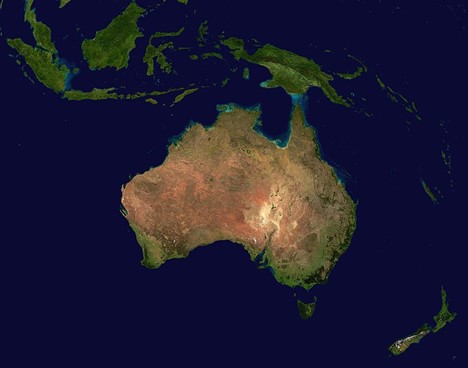On March 23rd, Sungsik Cho, a distinguished Senior Programme Specialist at the International Centre of Martial Arts for Youth Development and Engagement in UNESCO, visited George Mason Korea in Songdo, South Korea, to discuss the topic of “Turkmenistan: An Uncertain Partner in Today’s Global Energy Crisis”. In his presentation, Mr. Cho first provided students with some context on what Turkmenistan is before diving into his central question of why Turkmenistan is an uncertain energy partner. He then mentioned the underlying challenges of classifying Turkmenistan as an uncertain partner before wrapping up his lecture with whether or not our world has entered into this new “great game”? For each of these questions, Mr. Cho utilized his insight on energy security policy, along with his vast experience in international sports fields and events, to provide thorough and in-depth answers.
When answering the question of why Turkmenistan is an uncertain energy partner, Mr. Cho first underscored the importance of the Caspian Sea for both Turkmenistan and Central Asia, before emphasizing their current production rates. Turkmenistan holds the sixth-largest gas reserves but, despite its expansiveness, produces less than its counterparts. This leads to a political question regarding why Turkmenistan can’t be the Qatar of Central Asia, despite holding so many gas reserves. Mr. Cho mentioned a talk held between Turkmenistan, Afghanistan, Pakistan, and India, where Turkmenistan intended to build a pipeline called TAPI that would transport natural gas to India, passing through Afghanistan and Pakistan. The Turkmen idea for this pipeline is “certain but not certain,” and as Mr. Cho stated, it is hard to consider Turkmenistan a certain partner due to issues with soft power and security.
Toward the end of his lecture, Mr. Cho mentioned the underlying challenges of considering Turkmenistan an uncertain energy partner. The first is regarding lessons from the Ukraine war, and like Ukraine, if one former Soviet republic didn’t follow the Russian way, they are out. The second is regarding Turkmenistan’s relationship with Russia. As Mr. Cho addressed, Turkmenistan’s soft power is weak, unlike its counterparts in the Arab world. Much of their entertainment industry is Russian-dependent, and given its increased reliance on Russian imports, Turkmenistan can lose its economy if Russia closes the valve. The final challenge is the rise of China. Serdar, Turkmenistan’s new president, agreed to extend energy cooperation with Russia, but with China’s influence expanding and small powers being on the rise, as Mr. Cho mentioned, are we entering into this new great game?
After wrapping up his presentation, Mr. Cho opened the floor to the students for any questions they may have had. One question a student asked was regarding Turkmenistan’s impact from the Ukraine war. Mr. Cho noted that given how closed society is, Turkmenistan doesn’t know what’s happening in the conflict. Given the levels of insecurity and volatility Turkmenistan now faces, either they have to join energy blocs or forge their energy security pact with its foreign counterparts.

